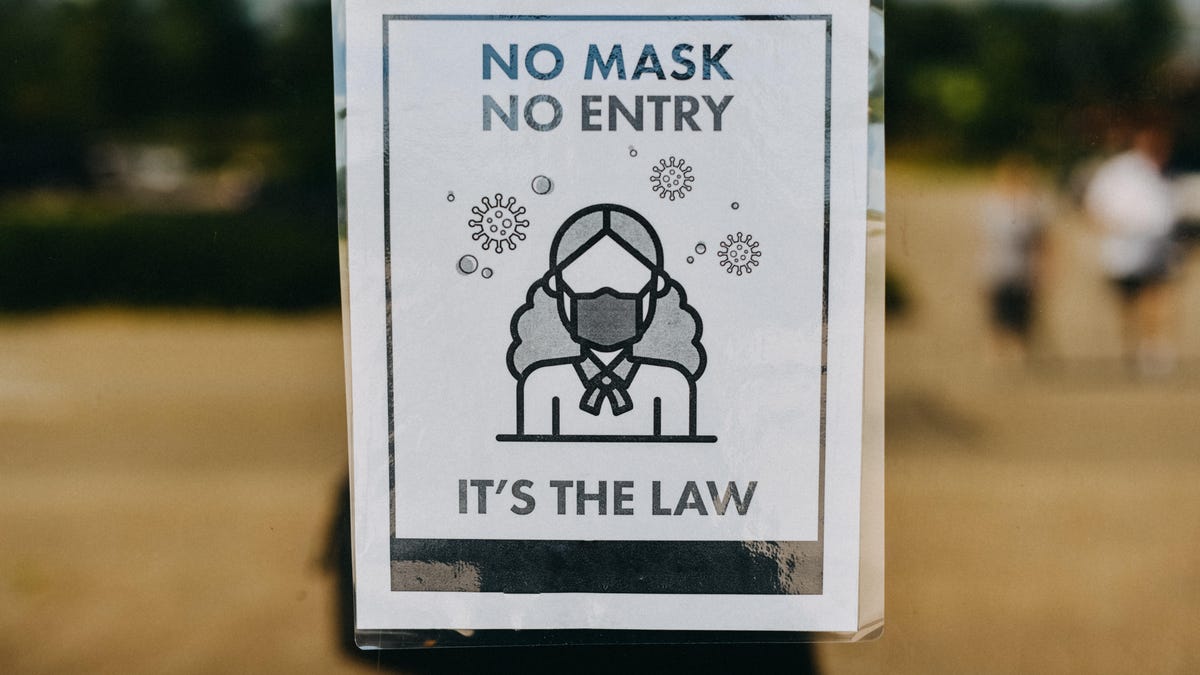CDC says vaccinated people don't need masks in most cases
The agency updates its guidance for fully vaccinated Americans, saying they can safely go maskless both indoors and outdoors. There are still some restrictions though.

Vaccinated people still need to follow local and state guidance on masks and social distancing, like when at a local business or in the workplace. They need to wear masks on public transit too.
In a long-awaited step toward pre-COVID-19 normalcy, the US Centers for Disease Control and Prevention said fully vaccinated people can safely stop wearing masks both indoors and outdoors. During a press briefing by the White House COVID-19 Response Team, the CDC said fully vaccinated people can also forgo social distancing and staying 6 feet apart, the agency's new guidance says. It also isn't necessary for fully vaccinated people to be tested, or to stay away from others, after exposure to someone with COVID-19, unless they develop symptoms.
Someone is fully vaccinated two weeks after receiving the second dose of the Pfizer or Moderna vaccine, or two weeks after receiving the Johnson & Johnson vaccine. People who aren't yet fully vaccinated should continue taking all precautions, the CDC says. It also says fully vaccinated people with health conditions or who are taking immunity-weakening medications should consult their doctor before easing up.
Exceptions to the new, loosened recommendations include the continued need to wear masks on public transportation such as buses, trains and airplanes. Vaccinated people also need to keep following local and state guidance on masks and social distancing, like when at a local business or in the workplace. And the CDC says the new guidance isn't meant for health care settings.
At the briefing, Dr. Anthony Fauci said the risk of contracting COVID-19 when fully vaccinated is "extremely low," whether you're indoors or outdoors.
CDC Director Rochelle Walensky and White House senior adviser for COVID response Andy Slavitt cited dropping case numbers of COVID-19 as a reason to loosen some restrictions. Cases have dropped about 40% since everyone over age 16 became eligible for vaccines. On May 11, there were 643 deaths from COVID-19 in the US. On Jan. 15, at the peak of the pandemic, there was a 7-day moving average of 3,368 deaths per day.
The CDC says people shouldn't travel until they're fully vaccinated. Fully vaccinated folks traveling within the US don't need to get tested before or following their trip, and they don't need to self-quarantine, the agency says. But they do need to wear masks and practice physical distancing. All travelers, including those traveling internationally, should be sure to get up to speed on any local COVID restrictions in place at their destination.
This shift in recommendations by the CDC comes a day after the agency recommended the Pfizer vaccine for children 12 to 15 years old. It also comes amid pressure to lessen restrictions on fully vaccinated Americans, in part to underline the benefits of getting a shot, the Associated Press reported.

